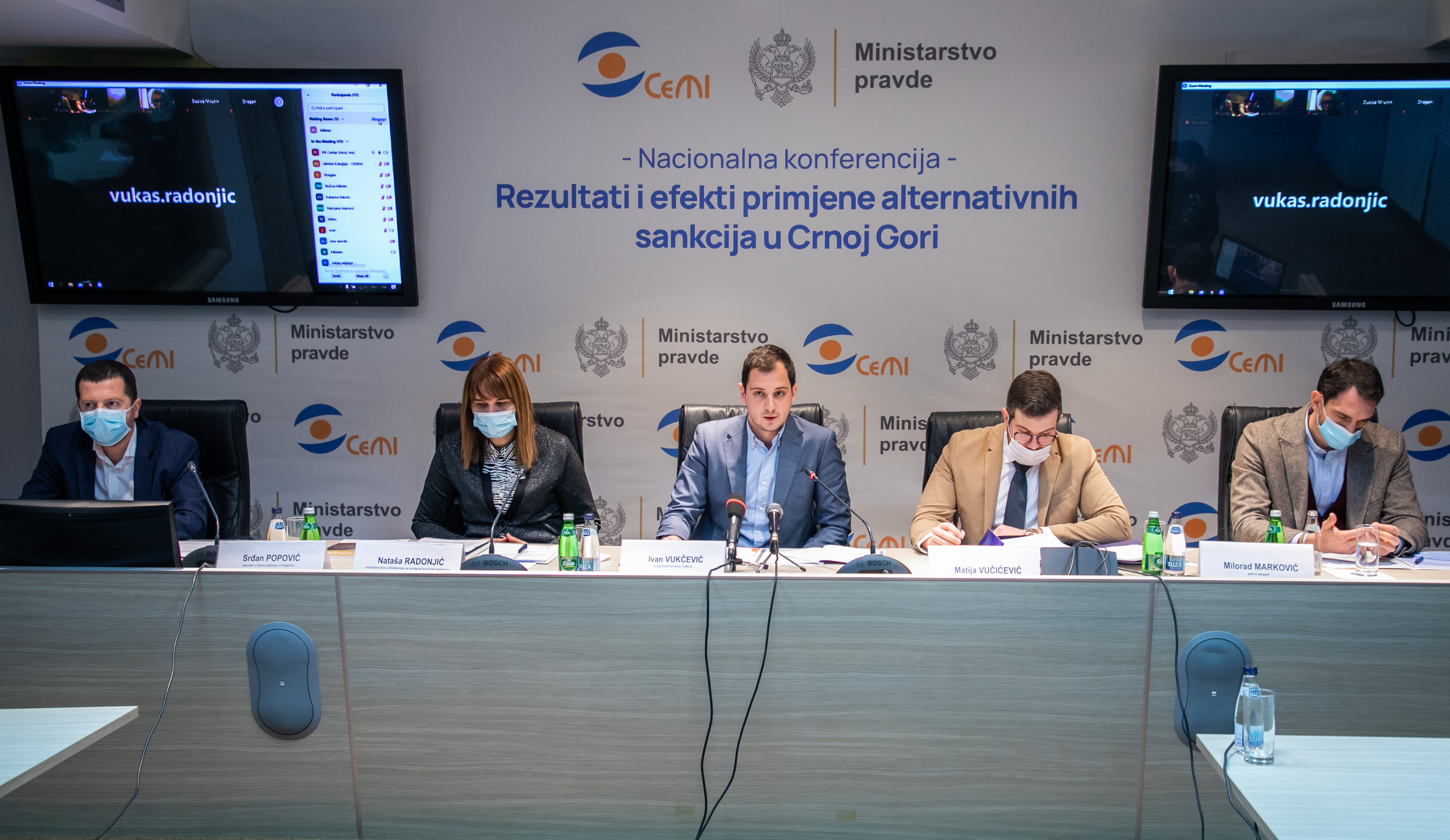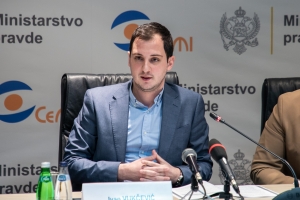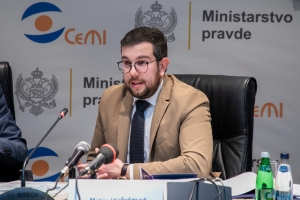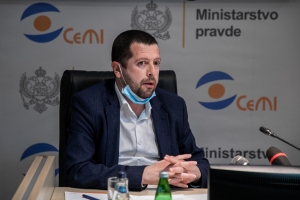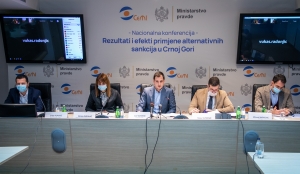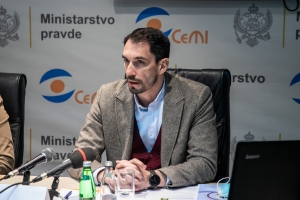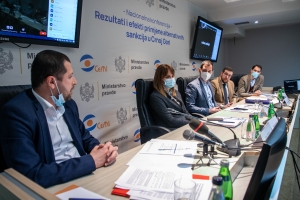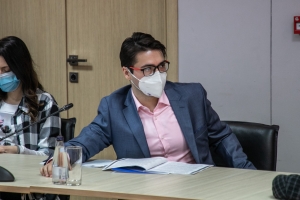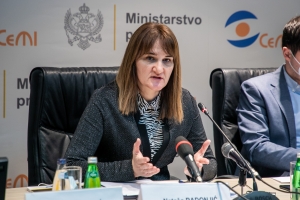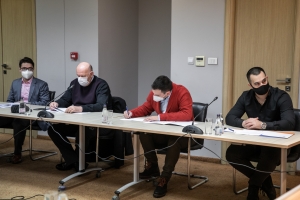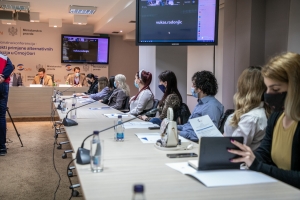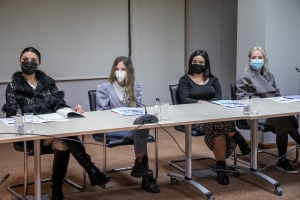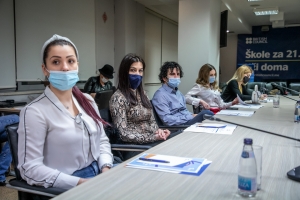Alternative sanctions should be accepted by society as an adequate substitute for prison sentences, and informing the public is important in order for the effect of that institute to be realized, it was announced at the national conference of the Center for Monitoring and Research (CeMI).
The program director of CeMI, Ivan Vukcević, said, presenting the recommendations of the study "Results and effectiveness of the application of alternative sanctions in Montenegro", that the level of information among citizens about the importance and positive effects of alternative sanctions is low.
"In order for the expected effect of alternative sanctions and measures to be fully realized, it is necessary that alternative sanctions and measures be accepted by the general public as an adequate replacement for prison sentences, so informing the public about the positive effects of alternative sanctions is an important step on that path," he pointed out. is Vukcevic at the national conference "Results and effects of the application of alternative sanctions in Montenegro".
He pointed out that the Law on Execution of Conditional Conviction and Punishment of Public Service is not fully in line with international standards in the field of probation and alternative sanctions.
"The law does not expressly prescribe the right to a legal remedy regarding matters that affect the exercise of their rights in connection with the application of alternative sanctions, which is not in accordance with the Probation Rules of the Council of Europe and the Tokyo Rules. Amendments to the Law on the Execution of Conditional Conviction and Punishment of Public Interest Work should provide for the possibility of a legal remedy," said Vukcevic.
According to him, in the last two years, a significant number of punishments for work in the public interest have been replaced by prison sentences, stating that this may be an indicator of insufficiently developed practice when it comes to this type of punishment, or insufficiently developed awareness of citizens about the positive aspects of this institute, especially in compared to institutional punishment.
"It is necessary to analyze in detail the reasons for the replacement of the sentence of work in the public interest with a prison sentence, not only from the formal aspect, in order to determine the most effective way to reduce such cases," Vukcevic pointed out.
He indicated that it is necessary to continue with a greater application of house arrest, in accordance with the law.
"To this end, it is necessary to provide a sufficient number of electronic monitoring devices, in order to avoid waiting for the execution of the sentence of house arrest, as well as the potential avoidance of its imposition due to technical impossibility of execution," said Vukcevic.
Natasa Radonjic, an authorized person in the Directorate for the Execution of Criminal Sanctions in the Ministry of Justice, Human and Minority Rights, said that from year to year there is an increase in the imposition of alternative sanctions, primarily punishment for public interest work.
"It is one punishment through which probation work and the purpose of alternative punishment can be best implemented." We also have another alternative punishment, which is an alternative to serving prison sentences in residential premises, where we have also had significant results in terms of an increase in the imposition of such sentences, through court decisions and through the trust for the imposition of this form of execution of the sentence," said Radonjic.
According to her, through the work and control of the Directorate, they saw, when it comes to these two types of sentences, that a number of convicted persons do not manage to complete the sentence as determined by a final court decision.
"This control of ours results in the remaining part of the sentence being replaced by an effective prison sentence." Even in the area of alternative punishment, there must be sanctions for those persons who do not comply with the alternative sanction execution program," Radonjic pointed out.
Legal expert, Milorad Markovic, assessed that the system of execution of alternative sanctions and its reform should be seen as a process that cannot be established in a short period of time.
"We must be aware that for the establishment of any system to the full extent, apart from the subjective conditions that need to be created, the relations of those who deal with those systems, the establishment of that system of people who work in concrete things and objects, it is very important that the objective conditions, which they often do not depend on them, they are such that they make further development and improvement of the system possible," Markovic pointed out.
He believes that the current system of execution of criminal sanctions and the system of execution of alternative sanctions is at the highest possible level, taking into account the objective conditions.
"A key element of improvement and reform when we talk about the system of execution of criminal sanctions is the state of consciousness that we must observe both from the aspect of the entire Montenegrin society, and from the aspect of state bodies, courts, prosecution and the Directorate for the Execution of Criminal Sanctions and the Probation Service," said Markovic.
He assessed the prerequisite for the alternative sanction to have the effect of citizens accepting persons who have committed criminal acts.
The secretary at the Health Center in Podgorica, Srdjan Popovic, said that the institution has been cooperating with the Directorate for the Execution of Criminal Sanctions since 2015, stating that since that year they received the first beneficiaries who were doing public service.
"In the beginning, when it all started, there was a lot of skepticism towards this institute. There was a lot of resistance, and people were afraid. "Of the 36 beneficiaries, most of them were convicted of crimes such as failure to provide maintenance, and some of them were also convicted of participating in a fight, causing serious bodily injury, and endangering public traffic," said Popovic.
He explained that later the employees started to get used to the users, stating that he is proud to point out that lately his colleagues have been asking him when they will get new users.
Lawyer Matija Vucicevic believes that alternative sanctions are a very sensitive issue.
He also assessed that there is a gap between the awareness of society in Montenegro and the quality of legislation regarding alternative sanctions.
"We managed to adopt international standards when it comes to alternative sanctions, but a gap has been made in terms of affirming society's awareness," said Vucicevic.
The conference was held within the framework of the project "Restorative justice - alternative sanctions to resocialization", implemented by CeMI, and supported by the former Ministry of Justice of Montenegro.
